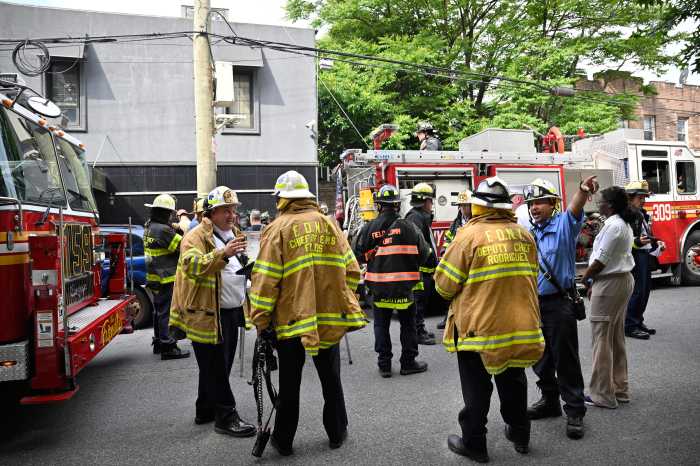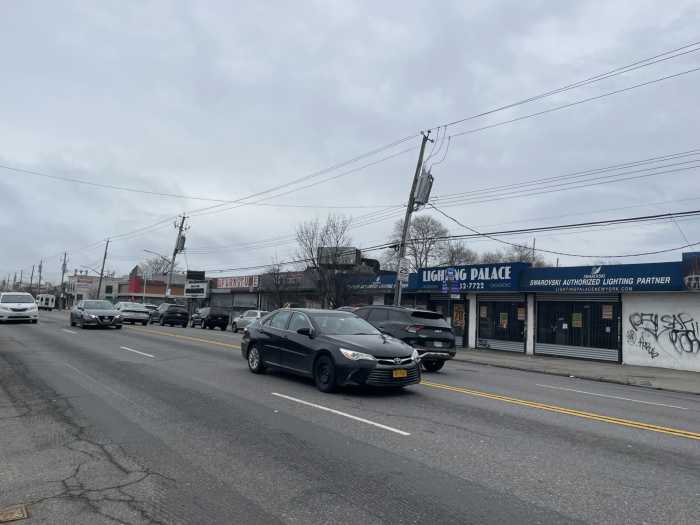The Carmine Carro Field House may be $11.5 million over budget, but the city says fear not: the building equipped with a high-tech geothermal heating and cooling system will pay for itself.
The only problem is it could take 300 years.
Parks Department officials told Brooklyn Daily last week that the cost overruns for the new field house — which was supposed to cost just $5 million — can be justified because the ultra-green building will ultimately save the city big bucks on utilities.
“The [field house’s] environmentally conscious design will save money in the long run, with energy use expected to be 45-percent lower than a building of comparable size,” said a Parks Department spokeswoman.
But the city wouldn’t provide utility costs for a city building “of comparable size,” leading some to question whether the Parks Department understands its own figures.
“How could they predict how much they’re saving if they don’t know the energy cost of a conventional building?” asked John Manzola, a member of the Marine Park Civic Association. “They’re just throwing numbers out.”
Manzola may not be wrong. After some number crunching, we learned that 12 generations of Marine Park residents will have used the field house before the building starts paying for itself.
Electricians and heating and air conditioning professionals say that it would cost the city about $7,000 a month to heat and cool something as large the field house — which is about the size of a tennis court.
“For a building of that size, using factory numbers that would be a good rough guess,” said Will Vassallo, Service Manager at Vigilante Plumbing, Heating, and Air Conditioning.
With the energy savings, the Field House would save $3,150 per month, or $37,800 a year — meaning that it will work off its $11.5-million cost overrun in 304 years, give or take a few months.
Critics were floored by the number, and wondered what the city will look like — or if the field house will still be standing — when it will begin to start saving the city money.
“The Parks Department is absolutely correct, the field house will save money,” said Manzola. “And maybe my great, great grandchildren will be around to see it.”
Even Field House supporters were a bit surprised.
“Obviously, urchins have been budgeted more efficiently,” said Councilman Lew Fidler, who set aside millions to have the field house built. “Nevertheless, no matter how hard you try to say otherwise, this is a good thing for the neighborhood and its future. Not every state-of-the-art project with cutting-edge green technology belongs in Manhattan.”
But Vassallo said one doesn’t take advantage of high-end energy saving technology to save money.
“If you want to go green, from my experience, it generally does not pay off in most cases,” he said. “It’s mostly the feel-good feeling you get from doing it.”
Emails to the Parks Department for comment about the building’s cost overruns and our figures weren’t answered. All the agency sent us was the same comment claiming how the field house will save money in the long run.
The price of the community center, which is essentially one large meeting room, two bathrooms, and closets for storage, has ballooned from $5 to $16 million and has suffered countless delays.
The project is currently costing taxpayers $5,000 a square foot — more than the 104-story Freedom Tower in Manhattan, which is $1,456 per square foot.
The Freedom Tower is expected to be completed early next year, beating the Marine Park Field House, which — according to the city’s latest estimates — should open sometime this winter. Both projects began in earnest in 2008.
Reach reporter Colin MIxson at cmixson@cnglocal.com or by calling (718) 260-4514.
























